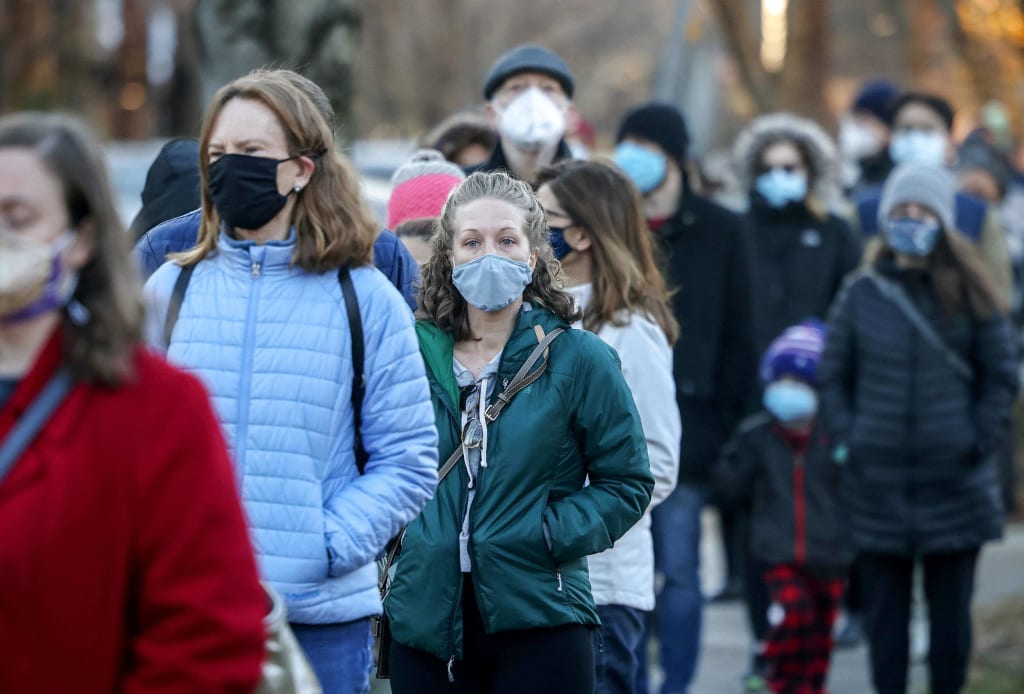
The COVID-19 pandemic is a global health crisis that has had a profound impact on every aspect of society. It is caused by the novel coronavirus and was first identified in Wuhan, China in December 2019. The virus quickly spread globally, leading the World Health Organization to declare it a pandemic on March 11, 2020.
The pandemic has caused widespread illness and death, as well as significant disruptions to economies, societies, and daily life. Governments around the world have implemented various measures to slow the spread of the virus, including lockdowns, travel restrictions, and the widespread use of masks and social distancing.
The pandemic has also had a major impact on mental health, with many people experiencing increased levels of stress, anxiety, and depression due to the uncertainty and changes brought about by the pandemic. The pandemic has also highlighted existing health disparities and inequities, with marginalized communities and essential workers being disproportionately affected by the virus.
The response to the pandemic has also brought about significant scientific advancements, including the development and distribution of multiple effective vaccines in just over a year. However, the widespread distribution of the vaccine and the eventual return to a more normal way of life remains a significant challenge, with the pandemic continuing to evolve and new variants of the virus emerging.
In conclusion, the COVID-19 pandemic has had a profound impact on the world and will continue to shape society for years to come. It has highlighted the importance of global cooperation and collective action, as well as the critical role of science and technology in addressing global health challenges.
A lockdown is a measure implemented by governments in response to the COVID-19 pandemic to control the spread of the virus. During a lockdown, people are typically instructed to stay at home and avoid non-essential travel and gatherings. Businesses and public places may also be closed.
Lockdowns have been implemented in many countries around the world and have had a significant impact on daily life and the economy. While they have been effective in reducing the spread of the virus, they have also caused widespread disruptions to work and education, as well as social and psychological challenges for many people.
Lockdowns have also had a major impact on the economy, with many businesses closing and people losing their jobs. The economic impact of the pandemic and lockdowns is expected to be felt for years to come.
However, lockdowns have also provided an opportunity for individuals and communities to come together in new and innovative ways. People have been using technology to stay connected with friends and family, and many have taken up new hobbies or pursued personal growth opportunities.
In conclusion, lockdowns have been a necessary measure to control the spread of COVID-19 but have also had significant social, economic, and personal impacts. As the world continues to grapple with the pandemic, governments will continue to assess and adjust their response, balancing the need to control the spread of the virus with the need to support the well-being of their citizens.
Taking care of one's health is essential for overall well-being and quality of life. There are several key steps that individuals can take to promote and maintain good health, including:
Eating a balanced and nutritious diet: Eating a diet that is rich in fruits, vegetables, whole grains, and lean protein can help to maintain overall health and prevent chronic diseases.
Staying physically active: Regular physical activity is important for maintaining a healthy weight, improving cardiovascular health, and reducing the risk of chronic diseases such as diabetes and heart disease.
Getting enough sleep: Adequate sleep is essential for good physical and mental health. Most adults need 7-9 hours of sleep per night.
Managing stress: Chronic stress can have a negative impact on physical and mental health. Strategies for managing stress may include exercise, mindfulness, and counseling.
Avoiding risky behaviors: Substance abuse, smoking, and excessive alcohol consumption can all have serious consequences for physical and mental health.
Seeking regular medical care: Regular check-ups, screenings, and preventive care can help individuals maintain good health and catch and treat health problems early.
In conclusion, taking care of one's health requires a proactive and holistic approach that involves paying attention to physical, mental, and emotional well-being. By making healthy choices and seeking regular medical care, individuals can maintain good health and improve their quality of life.
for people who want to learn what is important for a person to be healthy





Comments
Shalini Balan is not accepting comments at the moment
Want to show your support? Send them a one-off tip.